Galileo FS-80 Telescope$65.00 to $80.00
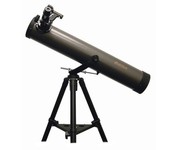
The Galileo FS-80 reflector telescope is a great beginner's reflecting telescope. The large 80mm primary mirror cell collects 33% more light than a 60mm refracting telescope. 1.25 focus housing permits the use of larger higher quality 1.25 eyepieces. Yoke mount makes the telescope easy to manage through altitude / azimuth (Up & Down, Left & Right) movement, and altitude slow motion control rod for precision adjustmentsMinimize
Manufacturer:Galileo Product MPN MPN | FS-80 | Key Features Optical Design | Refractor | Optical Diameter | 80 mm | Focal Length | 800 mm | Mount Type | Altazimuth | Motorized | No | Miscellaneous UPC | 798932000808 |
Tags:galileo, fs-80, telescope,
| Celestron Omni XLT 127 (300 x 127mm) Telescope$573.00 to $629.00
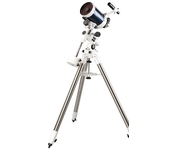
Omni XLT series features the stable platform of the CG-4 mount and high quality optics. Using aspheric shaping technology in conjunction with hand-figuring the optics the Omni XLT presents an image with virtually no spherical abberation. We also added our famous StarBright XLT coating system to further enhance light transmission.Minimize
Manufacturer:Celestron Product MPN MPN | 11084 | Key Features Optical Design | Catadioptrics | Optical Diameter | 127 mm | Finderscope | Optical | Focal Length | 1250 mm | Max Useful Magnification | x 300 | Mount Type | Equatorial | Motorized | No | Miscellaneous UPC | 050234110846 |
Tags:celestron, omni, xlt, 127, 300, x, 127mm, telescope,
| Celestron AstroMaster 70EQ (90 x 70mm) Telescope$115.00 to $170.00
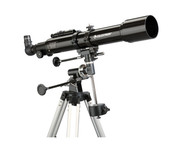
If you're looking for a dual-purpose telescope appropriate for both terrestrial and celestial viewing, then the AstroMaster Series is for you. Each AstroMaster model is capable of giving correct views of land and sky. The AstroMaster Series produce bright, clear images of the Moon and planets. It is easy to see the moons of Jupiter and the rings of Saturn with every one of these fine instruments. For views of the brighter deep space objects like galaxies and nebulae, we recommend the larger aperture and light gathering ability of the Newtonian reflectors.Minimize
Manufacturer:Celestron Product MPN MPN | 21062 | Key Features Optical Design | Refractor | Optical Diameter | 70 mm | Finderscope | Optical | Focal Length | 900 mm | Max Useful Magnification | x 90 | Mount Type | Equatorial | Motorized | No |
Tags:celestron, astromaster, 70eq, 90, x, 70mm, telescope,
|
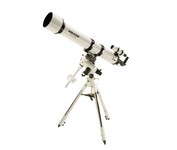
Diffraction-Limited Optics Meades Schmidt-Newtonian and Schmidt-Cassegrain optics yield pinpoint stellar images over an extremely wide field-of-view with only half the coma of standard Newtonians of the same focal ratio.
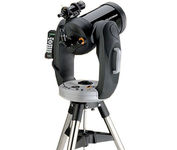
Celestron Professional Computerized (CPC) Series with revolutionary SkyAlign Alignment Technology redefines everything that amateur astronomers are looking for quick and simple alignment, GPS, unsurpassed optical quality, ease of set-up and use
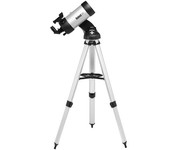
Our most powerfull, advanced technology reflector telescope with up to 675x magnification and massive 4 1/2 inch reflector mirror. "Goto" Computerized tracking technology. Red Dot LED finderscope. Remote hand-held control module. Camera adaptable. Quick release tripod. Kinematic mount. Accessory tray. 20,000 Object Onboard Starfinding Computer. 1.25" Format Eyepieces. Barlow Lens. A great starting telescope!Minimize
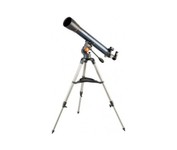
The AstroMaster produce bright, clear images of the Moon and planets. It is easy to see the moons of Jupiter and the rings of Saturn with every one of these fine instruments.






